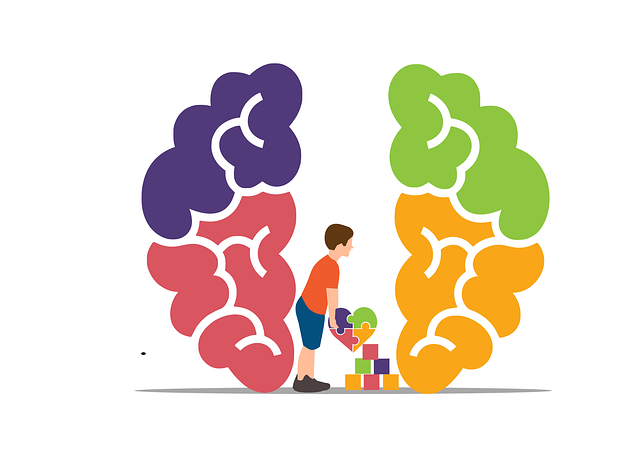Aurora Psychosis Therapy offers a revolutionary approach to mental health care, focusing on the power of positive thinking. Through cognitive restructuring, mindfulness exercises, and trauma support, it equips individuals with effective coping strategies for improved emotional well-being. Combining evidence-based techniques with daily positivity routines, such as breathing exercises and journaling, fosters resilience and optimism. Professional development resources and ongoing measurement of progress ensure tailored support and success in cultivating a positive mindset for enhanced overall well-being.
“Unleash your mind’s potential with the transformative power of Aurora Psychosis Therapy, a unique approach to mental wellness. This article explores how Positive Thinking Exercises (PTEs) can be seamlessly integrated into daily routines, fostering a resilient and optimistic mindset. From understanding the science behind PTEs to practical strategies for implementation, we guide you through the process. Learn how to navigate common challenges and measure long-term success. Embrace the Aurora Psychosis Therapy method to cultivate a positive, lasting impact on your mental health.”
- Understanding Aurora Psychosis Therapy: A Brief Overview
- The Science Behind Positive Thinking Exercises
- Practical Steps for Implementing Daily Positivity Routines
- Common Challenges and How to Overcome Them
- Measuring Success and Sustaining a Positive Mindset Long-Term
Understanding Aurora Psychosis Therapy: A Brief Overview

Aurora Psychosis Therapy is a revolutionary approach that leverages the power of positive thinking to help individuals navigate and overcome mental health challenges. This therapeutic method recognizes the profound impact of our thoughts on our emotional well-being, aiming to transform negative thought patterns into more constructive and optimistic ones. By fostering coping skills development and trauma support services, Aurora Psychosis Therapy equips people with the tools needed to build resilience and enhance their overall quality of life.
This innovative therapy goes beyond traditional methods by focusing on the profound connection between positive thinking and mental health recovery. It encourages individuals to challenge negative beliefs, replacing them with realistic and encouraging thoughts. Through a range of techniques, such as cognitive restructuring and mindfulness exercises, Aurora Psychosis Therapy helps clients develop effective coping strategies that promote psychological well-being.
The Science Behind Positive Thinking Exercises

The science behind positive thinking exercises is rooted in the concept that our thoughts directly influence our emotions and behaviors. Research has shown that practicing gratitude, optimism, and positive self-talk can lead to significant improvements in mental wellness. Aurora Psychosis Therapy leverages these findings by integrating evidence-based techniques into their therapeutic approaches, helping individuals cultivate a more positive mindset.
Public Awareness Campaigns Development and Mental Wellness Journaling Exercise Guidance have both recognized the power of positive thinking in enhancing emotional healing processes. By consistently engaging in exercises that promote positivity, people can reduce stress levels, increase resilience, and foster a sense of overall well-being. This shift in perspective has been found to be beneficial for various aspects of life, from personal relationships to professional success.
Practical Steps for Implementing Daily Positivity Routines

Implementing daily positivity routines can be a transformative practice, and Aurora Psychosis Therapy offers practical steps to make this journey accessible. Start by setting aside just 10-15 minutes each morning or evening for your practice. This dedicated time allows you to center yourself and cultivate a positive mindset. Begin with simple breathing exercises that focus on inhaling calmness and exhaling stress. These techniques, often part of Social Skills Training, promote self-regulation and can significantly impact your overall well-being.
Next, incorporate Self-Awareness Exercises by reflecting on the previous day’s experiences. Journaling is an excellent tool; write down three things you’re grateful for and one challenge you faced. This practice helps in identifying areas of growth while maintaining a positive outlook. Over time, these rituals will empower you to navigate life’s challenges with resilience, enhancing your ability to develop coping skills and fostering a more optimistic perspective.
Common Challenges and How to Overcome Them

Implementing positive thinking exercises can be challenging for many individuals, especially those dealing with mental health issues like aurora psychosis therapy. However, with the right strategies, these obstacles can be overcome. One common challenge is maintaining a consistent practice; people often struggle to find time or energy in their busy lives. To address this, it’s essential to integrate these exercises into daily routines. Start small, perhaps with a few minutes each day, and gradually increase the duration as you build momentum.
Another hurdle could be resistance to change or doubt about the effectiveness of positive thinking. It is crucial to remember that cultivating optimism is a skill that can be developed over time. Mental wellness coaching programs and trauma support services offer guidance in this journey. Through professional development resources, individuals can learn techniques tailored to their specific needs, making it easier to stay motivated and overcome challenges on their path to better mental health and overall well-being.
Measuring Success and Sustaining a Positive Mindset Long-Term

Measuring success is a critical component of any positive thinking exercise, providing a benchmark to track progress and gauge the effectiveness of the practice. In the context of Aurora Psychosis Therapy, this could involve using standardized tools for mental health assessment, such as validated questionnaires or clinical interviews, to evaluate changes in symptoms, mood, and overall functioning. By regularly comparing current outcomes with initial assessments, individuals can visually demonstrate their growth and foster a deeper sense of accomplishment.
Sustaining a positive mindset over the long term requires ongoing commitment and the integration of positive thinking into daily routines. This involves adopting self-care practices like mindfulness meditation, regular physical activity, and maintaining social connections. Additionally, mental health professionals should prioritize their well-being through comprehensive Risk Assessment for Mental Health Professionals, ensuring they have adequate support systems in place. Engaging in Healthcare Provider Cultural Competency Training can also enhance their ability to connect with diverse patient populations, thereby fostering inclusive environments that promote positive mental health outcomes.
Aurora Psychosis Therapy offers a powerful approach to enhancing mental well-being through positive thinking exercises. By understanding the science behind its effectiveness and implementing practical steps, individuals can cultivate a more optimistic mindset. Overcoming common challenges along the way is crucial for sustained success. Through regular practice and measurement of progress, one can maintain a positive mindset, reaping long-term benefits that resonate in all aspects of life.











